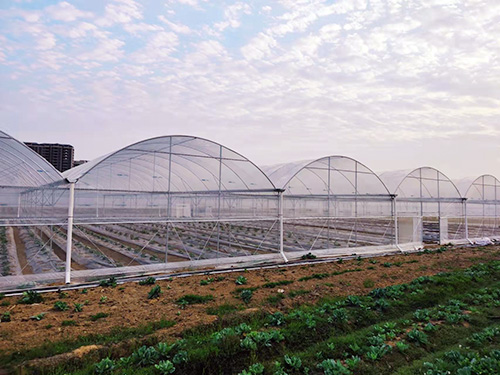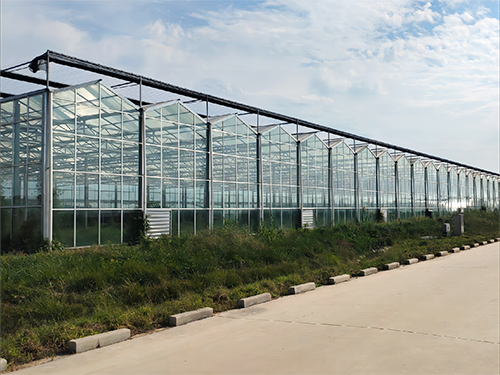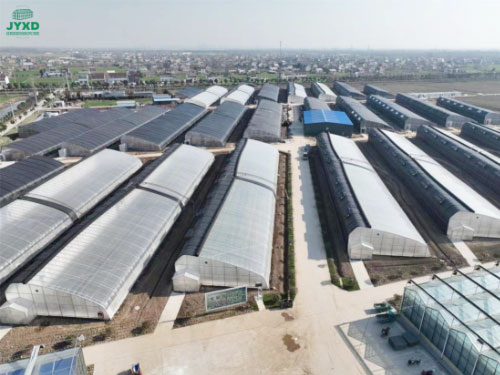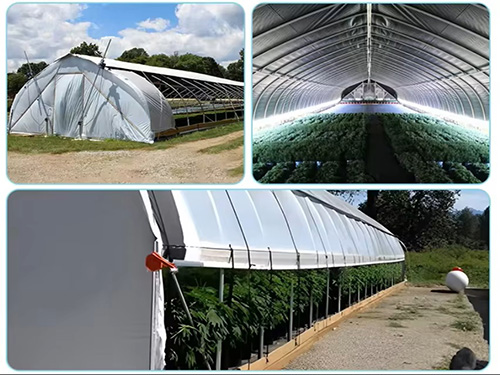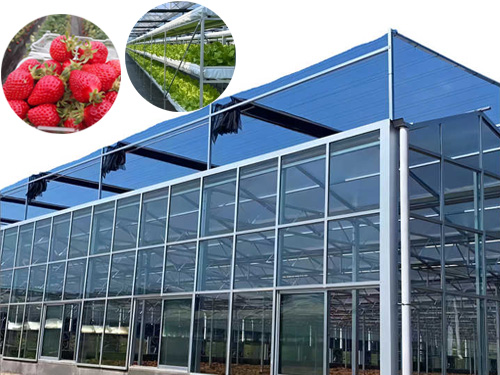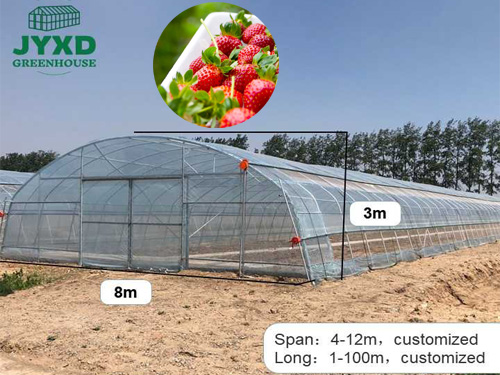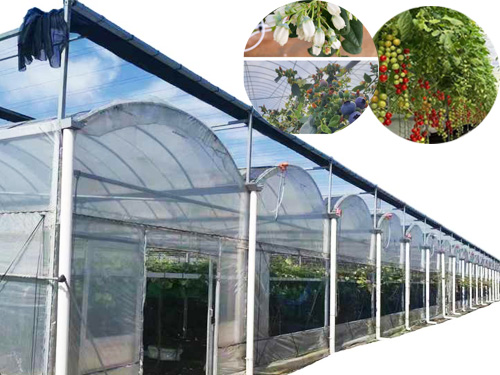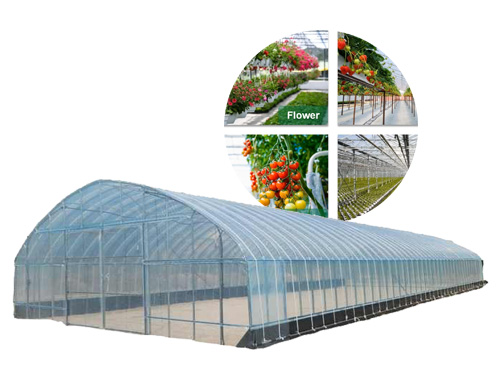NEWS DETAILS
NEWS INFORMATION
How to Design a Greenhouse Drainage System to Prevent Water Accumulation
AUTHOR:jyxd-greenhouse DATE:2025-02-26 12:34:36 HITS:104
A well-designed greenhouse drainage system is essential for preventing water accumulation, which can lead to root diseases, poor plant growth, and structural damage. Proper drainage ensures that excess water is efficiently removed, maintaining a healthy growing environment for plants. This guide explains the key steps to designing an effective greenhouse drainage system.
1. Understanding the Importance of Proper Drainage
Excess water in a greenhouse can create multiple issues, including:
• Root rot and fungal diseases due to overly wet soil
• Reduced oxygen availability for plant roots
• Increased humidity levels, leading to mold and mildew
• Structural damage to the greenhouse foundation
By implementing a well-planned drainage system, these problems can be minimized, improving overall crop health and productivity.
2. Choosing the Right Greenhouse Flooring
The type of greenhouse flooring plays a crucial role in water drainage. Some flooring options allow better drainage than others.
Best Flooring Choices for Drainage:
• Gravel and Sand Base: A combination of gravel and sand allows excess water to drain quickly.
• Permeable Concrete: Designed with small gaps to let water pass through while maintaining a solid walking surface.
• Raised Beds with Drainage Layers: Helps prevent water from pooling around plant roots.
• Sloped Floors: A slight slope (1-2%) directs water toward designated drainage channels.
3. Installing Drainage Channels and Gutters
Drainage channels and gutters help collect and divert excess water away from the greenhouse.
Key Considerations:
• Install gutters along the roof to collect rainwater and prevent leaks.
• Position drainage channels along the greenhouse perimeter to guide water away.
• Use perforated pipes beneath the soil to improve underground drainage.
• Direct excess water to a designated runoff area or collection system.
4. Selecting the Right Drainage System
There are several types of greenhouse drainage systems, and the best choice depends on the greenhouse size and climate conditions.
Common Drainage Solutions:
• Subsurface Drainage: A network of underground pipes removes excess water efficiently.
• Surface Drainage: Open channels or sloped pathways direct water toward a collection area.
• French Drains: A gravel-filled trench with a perforated pipe that redirects water away from plant beds.
5. Improving Soil Drainage
Poor soil drainage can lead to standing water, which harms plant roots.
Ways to Improve Soil Drainage:
• Mix organic matter such as compost or peat moss to enhance soil structure.
• Add perlite, sand, or vermiculite to increase aeration.
• Use raised beds to keep plant roots above waterlogged areas.
6. Managing Irrigation to Prevent Water Buildup
Over-irrigation can contribute to drainage problems. A well-regulated irrigation system helps maintain optimal moisture levels.
Best Practices:
• Use drip irrigation to deliver water directly to plant roots.
• Install moisture sensors to monitor soil conditions and prevent overwatering.
• Water plants in the morning to allow excess moisture to evaporate throughout the day.
7. Regular Maintenance for Long-Term Drainage Efficiency
A well-designed drainage system requires regular maintenance to remain effective.
Maintenance Tips:
• Clean gutters and drainage channels regularly to remove debris.
• Check for clogged pipes or blocked drainage holes.
• Inspect the greenhouse floor for water buildup and adjust slopes if necessary.
• Replace worn-out drainage materials to maintain efficiency.
Conclusion
Designing an effective greenhouse drainage system is essential for preventing water accumulation and maintaining a healthy growing environment. By selecting the right flooring, installing proper drainage channels, improving soil structure, and managing irrigation, greenhouse growers can prevent water-related issues and enhance crop productivity. Regular maintenance ensures long-term success, making drainage management a critical component of sustainable greenhouse farming.
Would you like recommendations on specific drainage materials or greenhouse irrigation systems?
Hebei Juyou Xinda Greenhouse Facilities Co.,Ltd.
Copyright © 2024-2025 https://www.jyxd-greenhouse.com. All Rights Reserved Hebei Juyou Xinda Greenhouse Facilities Co.,Ltd.Copyright




 Current Location:
Current Location: